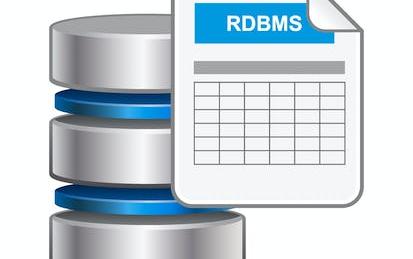

Our Courses

Databases for Data Scientists
Whether you are a beginning programmer with an interest in Data Science, a data scientist working closely with content experts, or a software developer seeking to learn about the database layer of the stack this specialization is for you! We focus on the relational database which is the most widely used type of database. Relational databases have dominated the database software marketplace for nearly four decades and form a core, foundational part of software development.
-
Course by

-
 Self Paced
Self Paced
-
 English
English

Applied Data Science with R
This Specialization is intended for anyone with a passion for learning who is seeking to develop the job-ready skills, tools, and portfolio to have a competitive edge in the job market as an entry-level data scientist. Through these five online courses, you will develop the skills you need to bring together often disparate and disconnected data sources and use the R programming language to transform data into insights that help you and your stakeholders make more informed decisions. By the end of this Specialization, you will be able to perform basic R programming tasks to complete the data
-
Course by

-
 Self Paced
Self Paced
-
 English
English

Create a Database with the Modeling Tool in MySQL Workbench
In this project you will use the Modeling and Design Tool in MySQL Workbench to design and create a multiple-table relational database. As a DBMS (database management system), MySQL is used by many organizations for managing a variety of types and sizes of databases. MySQL Workbench acts as an integrated development environment allowing users to work with relational databases using a visual user interface rather than the command line.
-
Course by

-
 Self Paced
Self Paced
-
 3 hours
3 hours
-
 English
English

Data Science with Databricks for Data Analysts
This specialization is intended for data analysts looking to expand their toolbox for working with data. Traditionally, data analysts have used tools like relational databases, CSV files, and SQL programming, among other…
-
Course by

-
 Self Paced
Self Paced
-
 English
English

Data Engineering Foundations
Data engineering is one of the fastest-growing tech occupations, where the demand for skilled data engineers far outweighs the supply. The goal of data engineering is to make quality data available for fact-finding and data-driven decision making. This Specialization from IBM will help anyone interested in pursuing a career in data engineering by teaching fundamental skills to get started in this field.
-
Course by

-
 Self Paced
Self Paced
-
 English
English

Database Design and Operational Business Intelligence
The goal of this specialization is to provide a comprehensive and holistic view of business intelligence and its enabling technologies, including relational databases, data warehousing, descriptive statistics, data mining, and visual analytics. Through this series of courses, you will explore relational database design, data manipulation through Extract/Transform/Load (ETL), gaining actionable insight through data analytics, data-based decision support, data visualization, and practical, hands-on experience with real-world business intelligence tools.
-
Course by

-
 Self Paced
Self Paced
-
 English
English

Introduction to SQL and relational databases
Get to know relational databases and learn SQL, the standard language used in business software that will allow you to query them and extract the information you need.
-
Course by

-
 Self Paced
Self Paced
-
 English
English

Introduction to Relational Databases (RDBMS)
Are you ready to dive into the world of data engineering? In this beginner level course, you will gain a solid understanding of how data is stored, processed, and accessed in relational databases (RDBMSes). You will work with different types of databases that are appropriate for various data processing requirements. You will begin this course by being introduced to relational database concepts, as well as several industry standard relational databases, including IBM DB2, MySQL, and PostgreSQL.
-
Course by

-
 Self Paced
Self Paced
-
 19 hours
19 hours
-
 English
English

Introduction to Databases
In this course, you will be introduced to databases and explore the modern ways in which they are used. Learn to distinguish between different types of database management systems then practice basic creation and data selection with the use of Structured Query Language (SQL) commands.
-
Course by

-
 Self Paced
Self Paced
-
 27 hours
27 hours
-
 English
English

Database Management Essentials
Database Management Essentials provides the foundation you need for a career in database development, data warehousing, or business intelligence, as well as for the entire Data Warehousing for Business Intelligence specialization. In this course, you will create relational databases, write SQL statements to extract information to satisfy business reporting requests, create entity relationship diagrams (ERDs) to design databases, and analyze table designs for excessive redundancy.
-
Course by

-
 Self Paced
Self Paced
-
 123 hours
123 hours
-
 English
English
Managing Big Data with MySQL
This course is an introduction to how to use relational databases in business analysis. You will learn how relational databases work, and how to use entity-relationship diagrams to display the structure of the data held within them. This knowledge will help you understand how data needs to be collected in business contexts, and help you identify features you want to consider if you are involved in implementing new data collection efforts.
-
Course by

-
 Self Paced
Self Paced
-
 32 hours
32 hours
-
 English
English



